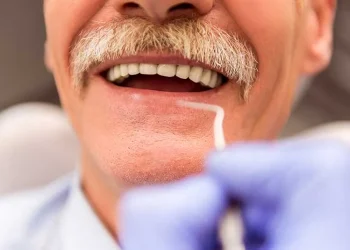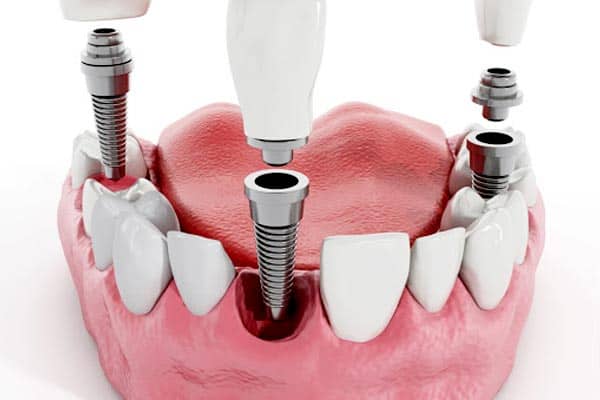Contents
Pros and Cons of Porcelain Veneers
Porcelain veneers are a popular cosmetic dental solution that can transform the appearance of your teeth. They are thin, custom-made shells that are placed over the front surface of your teeth to improve their appearance. In this article, we will discuss the advantages of porcelain veneers. While porcelain veneers offer many benefits, they also have their downsides that patients should consider before opting for this cosmetic dental procedure.
Advantages of Porcelain Veneers
Improved Appearance
Porcelain veneers are a popular cosmetic dental treatment that can greatly enhance the appearance of your teeth. By effectively covering up a variety of flaws, including stains, chips, cracks, gaps, and misshapen teeth, veneers provide a versatile solution to help you achieve the smile you desire.
One of the key benefits of veneers is their ability to make your teeth appear longer or wider, thereby contributing to a more symmetrical and aesthetically pleasing smile. This can greatly boost your confidence and self-esteem, as well as improve your overall oral health.
Veneers are custom-made, which means you have the freedom to choose the color, shape, and size of your veneers to match your natural teeth or create a completely new look. This personalized approach ensures that your veneers will not only look great, but also feel comfortable and natural in your mouth.

Durability
Porcelain veneers are an excellent cosmetic dental treatment that can provide you with a long-lasting and durable solution for your smile. These veneers can last for up to 10-15 years, depending on how well you take care of them.
Unlike other dental treatments, porcelain veneers are highly resistant to staining and discoloration, making them an ideal choice for those who want to maintain a bright and beautiful smile. In addition, they are less likely to chip or crack than natural teeth, providing you with a reliable and effective solution for your dental needs.
With porcelain veneers, you can enjoy a confident and radiant smile that will last for years to come, allowing you to feel more confident and self-assured in your daily life.
Minimal Tooth Alteration
Porcelain veneers offer an array of benefits for individuals who are looking to enhance their smile. One of the most significant advantages of porcelain veneers is that they require minimal tooth alteration.
While dental crowns often require the removal of a considerable amount of tooth structure, veneers only require the removal of a thin layer of enamel. This means that your natural teeth are preserved, and the procedure is less invasive and more comfortable.
Moreover, the process of getting porcelain veneers is relatively simple and straightforward, requiring only a few visits to the dentist. During the first visit, the dentist will prepare your teeth and take impressions to create custom veneers that fit perfectly over your natural teeth. Once the veneers are ready, the dentist will bond them to your teeth using a special adhesive, creating a seamless and natural-looking smile.
Improved Functionality
Porcelain veneers are a versatile cosmetic dentistry option that can not only enhance the appearance of your smile, but also improve the functionality of your teeth. In addition to their aesthetic benefits, veneers can help restore the natural function of your teeth, making it easier for you to eat, speak, and enjoy your favorite activities, even if you have chipped or misshapen teeth.
With veneers, you can have the confidence to bite into an apple or chew your favorite food without worrying about damaging your teeth. You can also speak with clarity and confidence, whether in a professional or social setting. Furthermore, veneers can provide long-lasting results, so you can continue to enjoy the benefits of a healthy and functional smile for years to come.
Overall, porcelain veneers are a great investment in your oral health and well-being, offering both cosmetic and functional benefits that can greatly enhance your quality of life.
No Pain or Swelling
Many patients appreciate that this technique does not cause pain, sensitivity, or discomfort, which is a common concern with other dental procedures. Porcelain veneers are specifically designed to be minimally invasive, which means that only a thin layer on the outside of the tooth is removed at a small rate, while preserving the tooth tissue and pulp.
This ensures that the tooth remains strong and healthy, preventing any further damage or complications. Therefore, if you are looking for a dental procedure that is both effective and safe, porcelain veneers may be the perfect solution for you.
Disadvantages of Porcelain Veneers
Potential Damage to Natural Teeth
One of the major drawbacks of porcelain veneers is that the process of placing them involves the removal of a thin layer of the natural tooth enamel. This procedure is irreversible, and the tooth will always need some type of protection after the veneers are placed. Although this procedure is generally safe and effective, it can make the teeth more sensitive, especially if the patient has thin enamel to begin with.
Furthermore, if a patient decides to remove the veneers at any point, they may find that their natural teeth have become weaker and more vulnerable to damage and decay. This is because the removal of the enamel layer can lead to a loss of strength and durability in the tooth, leaving it more susceptible to wear and tear over time.
Therefore, it is important for patients to carefully consider the potential risks and benefits of porcelain veneers before undergoing this procedure, and to consult with a qualified dental professional to determine the best course of action for their individual needs and goals.
Cost
While porcelain veneers can provide a great cosmetic solution to dental issues, it is important to consider their cost. Unfortunately, porcelain veneers are one of the most expensive cosmetic dental procedures available. However, the cost can vary depending on the dental office and the number of veneers required.
Despite the cost, many people find that porcelain veneers are worth the investment. They can improve the appearance of teeth and boost confidence, leading to a happier and more fulfilling life.
Complicated Process
The process of porcelain veneers treatment can be more complicated than other procedures. This is because the process involves multiple complicated steps, including preparation, design, and placement.
However, each step is critical in ensuring that the final product is durable and long-lasting. The preparation stage, for instance, involves removing a small layer of your tooth’s enamel to make room for the veneers. The design stage, on the other hand, is where the dentist creates a mold of your teeth to ensure that the veneers fit perfectly. Finally, the placement stage involves bonding the veneers to your teeth with a special adhesive.
While the process can be complex, choosing an experienced and skilled dental professional can minimize the risk of complications. It’s important to note that while porcelain veneers can cause discomfort if not done correctly, this is generally a temporary problem that can be easily remedied by your dentist.
Not applicable to all cases
It is important to note that porcelain veneers are not suitable for all cases and may not produce the desired results for certain individuals. Factors such as the amount of natural tooth enamel, the shape and alignment of the teeth, and gum health all need to be taken into consideration before deciding if porcelain veneers are a viable option.
In some cases, the removal of too much natural tooth enamel may not be advisable, or the teeth may not be structurally sound enough to support veneers. Additionally, individuals with gum disease or weakened teeth may not be good candidates for this procedure. It is important to consult with a dental professional to determine if porcelain veneers are a good option for your specific needs.

Notes When Having Porcelain Veneers
When having porcelain veneers, it is important to take careful notes to ensure their longevity and maintain their appearance. For example, it is recommended to avoid consuming foods and beverages that can stain the veneers, such as coffee, tea, and red wine. Additionally, it is important to maintain a consistent oral hygiene routine, including brushing and flossing regularly, to prevent gum disease and the buildup of plaque. It may also be beneficial to use a night guard to prevent grinding or clenching teeth, which can damage the veneers. Finally, it is recommended to visit the dentist for regular check-ups and cleanings to ensure the veneers are in good condition and to address any issues that may arise.
Conclusion
Porcelain veneers are an excellent option for people who want to improve the appearance of their teeth. They are durable, long-lasting, and require minimal tooth alteration. With veneers, you can enjoy a beautiful and confident smile.
While porcelain veneers can offer many benefits, patients should consider the potential downsides before deciding if they are the right choice for them. The removal of natural tooth enamel, high cost, and maintenance required are all factors that need to be taken into consideration. Ultimately, it is important for patients to weigh up the pros and cons and discuss their options with their dentist to make an informed decision.















